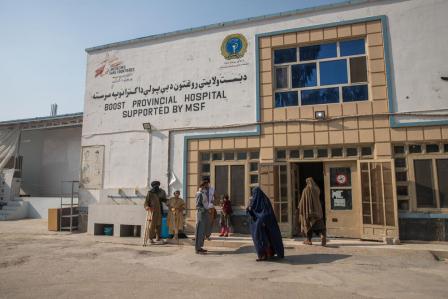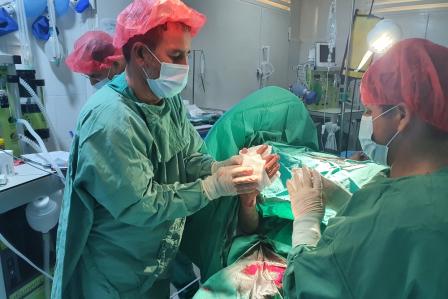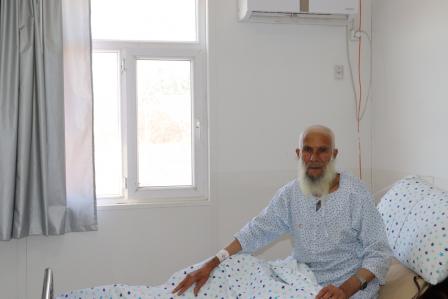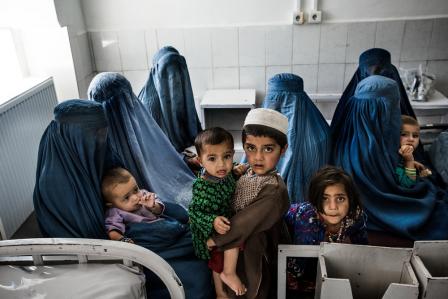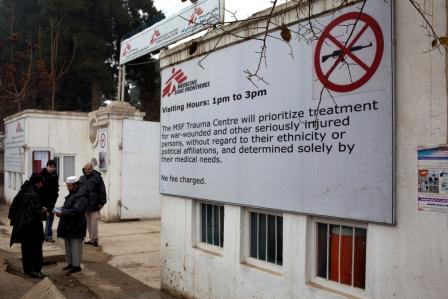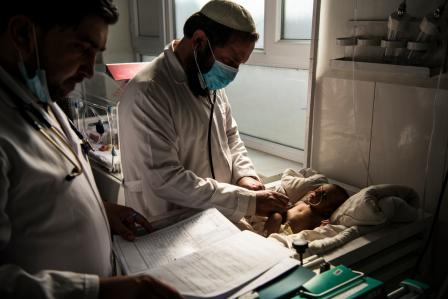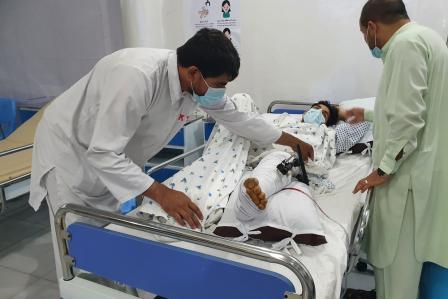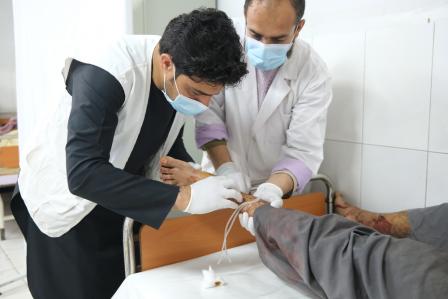Nine months in Afghanistan
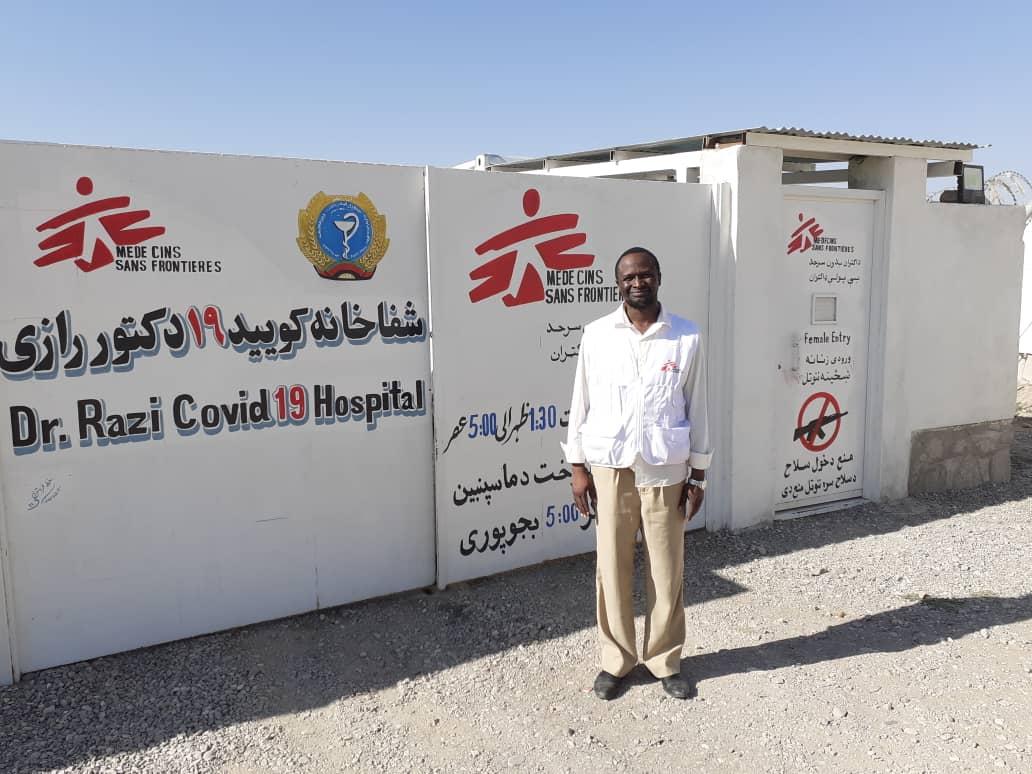
Mamman Mustapha joined the Doctors Without Borders team in Afghanistan as Project Coordinator in 2020.
I arrived in Herat, in western Afghanistan, on the 31st of December 2020. Almost exactly a year ago.
My assignment was meant to be short – just three months initially. I was there to work as the project coordinator, responsible for coordinating our medical operations, negotiations with authorities, and security management of the team.
Herat
Doctors Without Borders has been working in Herat since 2018. We run a 74-bed therapeutic feeding centre for malnourished children in Herat regional hospital. On the outskirts of a camp for internally displaced people we run a clinic which offers general medical consultations, including for non-communicable diseases, ante and post-natal care, childhood vaccinations and malnutrition screening and treatment. We also support the COVID-19 pandemic response by triaging suspected cases at the regional hospital and running a COVID-19 treatment centre.
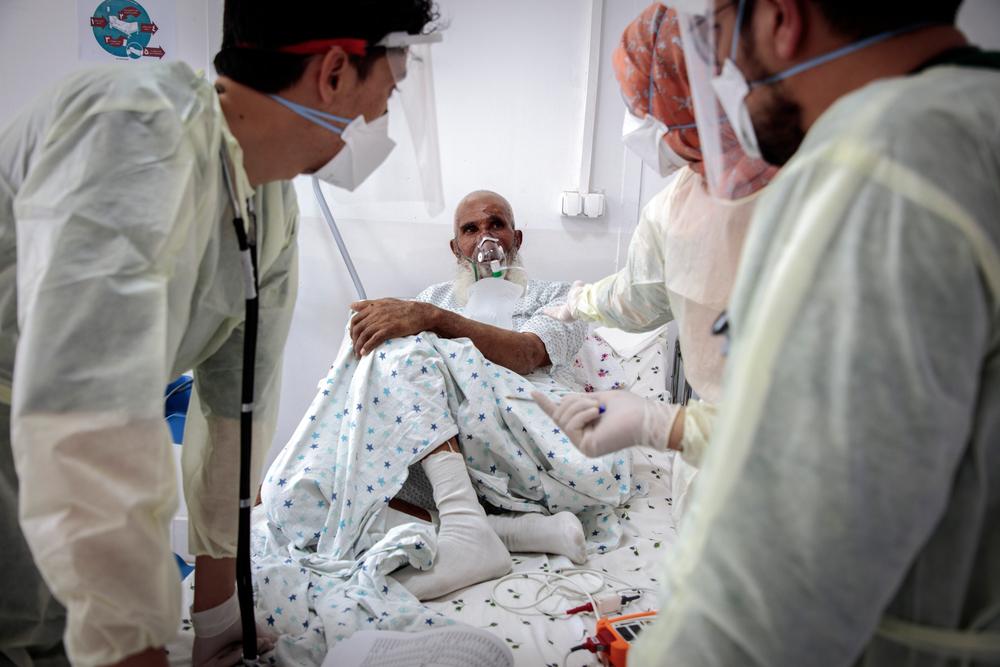
Doctors visit a patient at Doctors Without Borders' Covid-19 treatment facility in Herat. Afghanistan, 2021. © Sandra Calligaro
In those early months of 2021 the armed conflict was ongoing in Afghanistan, but Herat was relatively safe compared to other provinces in the country.
I soon decided to extend my assignment by another six months: I wanted to better understand the environment and the health needs of communities here.
Everything changed
However, from May 1st, almost everything began to change. By July, the conflict had reached several major cities.
Negotiation was my daily job, and we regularly explained to all the parties in the conflict that we are here to provide emergency medical services, we are neutral to the conflict, and we are independent in the cause of our actions, we treat patients irrespective of their religion, gender or political affiliation, based on their medical needs alone.
August
By mid-August the fighting was over and Afghanistan had a new government.
The safety and security of my team, patients and caretakers remained my number one priority, and I had to rapidly establish new contacts with the government (starting every relationship from scratch). It was challenging but fruitful.
I met the new health representative the morning following the take-over. This was my first meeting with the new government and it gave my team courage to continue our work without hindrance.
But even though the fighting had ended, there were still huge challenges. Airports and banks were closed, and throughout August and September many other medical organisations were scaling down their work, as funding was suspended by the EU, World Bank and others. The assets of the Afghan Central Bank were frozen by the US Federal Reserve.
Lack of supplies and equipment
As a result, the healthcare system almost collapsed. For a time in the regional hospital where we work, non-Doctors Without Borders staff weren’t paid their salaries, and many left their jobs because they need to earn money. Staff in Herat Regional Hospital are now receiving salaries again but in some health facilities across the country there are not enough medical supplies nor functional equipment.
But of course, people still need healthcare.
“In the regional hospital where we work, staff have not being paid for five months+”
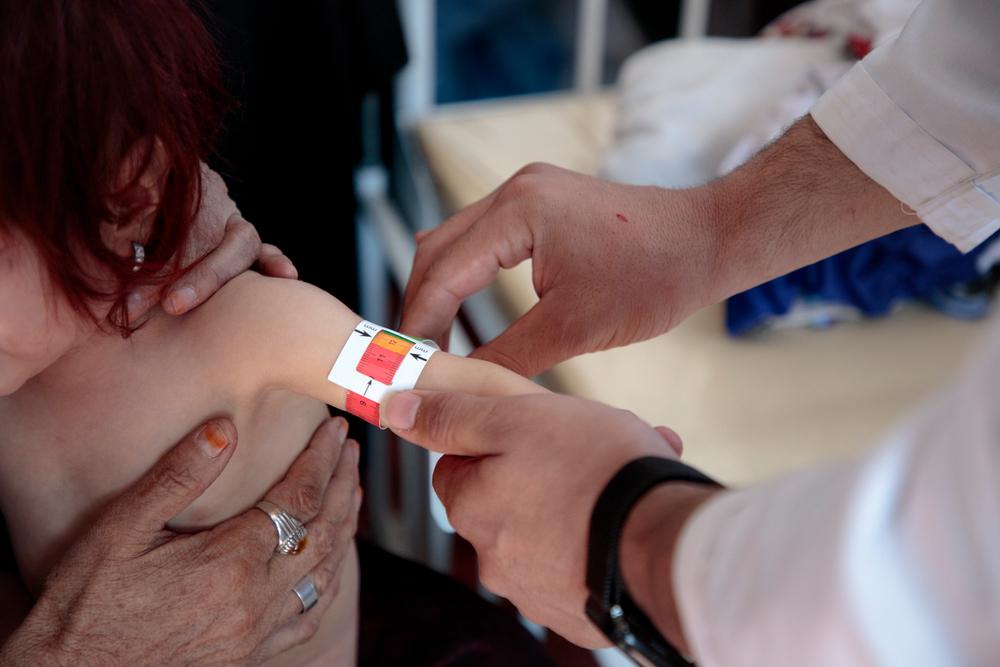
A malnourished child during a consulation at Doctors Without Borders' Kahdestan Clinic. Afghanistan, 2021. © Sandra Calligaro
As an organisation funded directly by private donations, we didn’t face the same funding challenges, so we were able to keep working, though under increased pressure. The medical and non-medical needs in Herat are enormous, especially in the context of the current economic crisis.
There is no armed conflict in Herat, but people are still dying, as many cannot afford to buy food. In September, October and November, the number of malnourished children arriving at our inpatient therapeutic feeding centre was significantly higher than the same months last year. This is an indicator of poverty, hunger and a general malnutrition crisis.
Farewell
I finished my assignment in Afghanistan in October, saying goodbye to my Afghan colleagues, whose dedication and zeal had encouraged me a lot throughout my time there, as well as putting smiles on our patients’ faces.
The work was challenging, incredibly intense and demanding, but seeing the results kept me positive. And the work is continuing. In December the team started paediatric services in Herat Regional Hospital, improving access to medical care for the sickest children in the district.
Herat is a fulfilling place to come and work and it is a place that most people would like.
The future
The future of almost everything is uncertain, and our activities are still under pressure. The challenges we face will evolve and the security of our teams and patients remain a concern. What is clear to me is that we are needed there, that our team is motivated and dedicated, and that we are doing our best, as much as we can.
Mamman Mustapha is a project coordinator and in 2020 he joined Doctors Without Borders team in Afghanistan.
